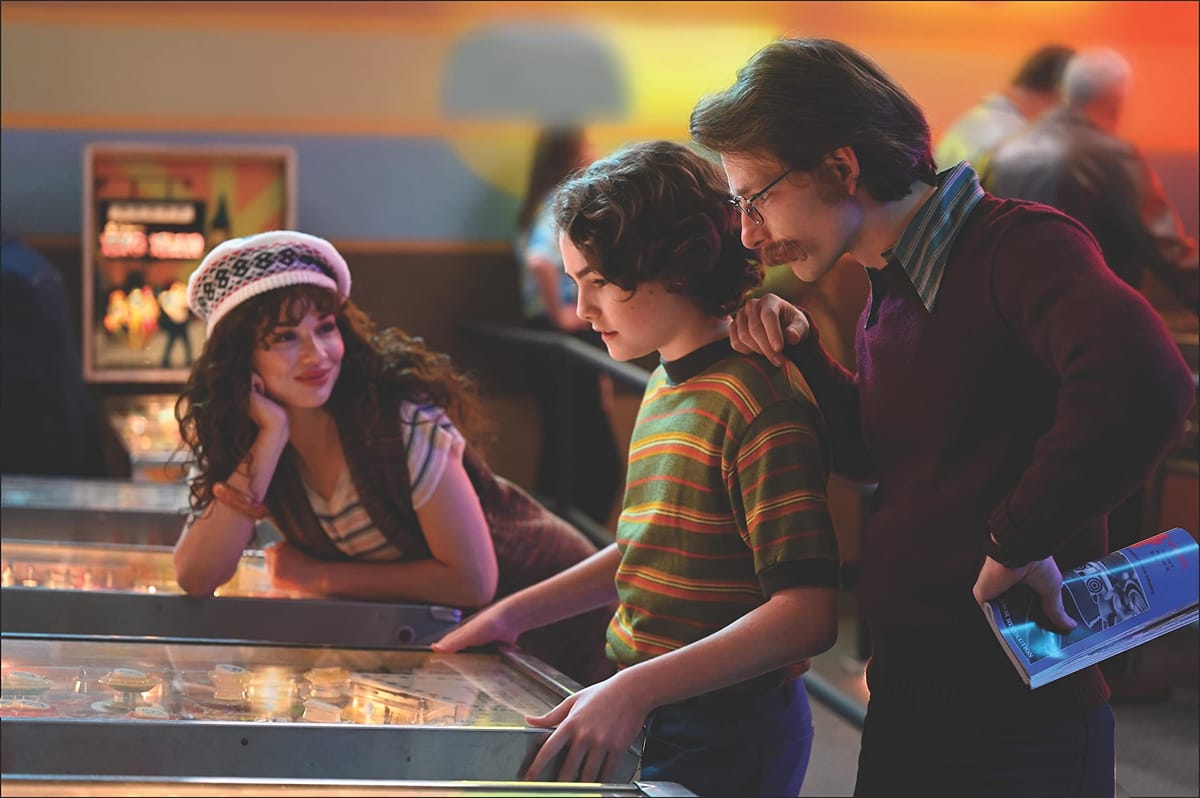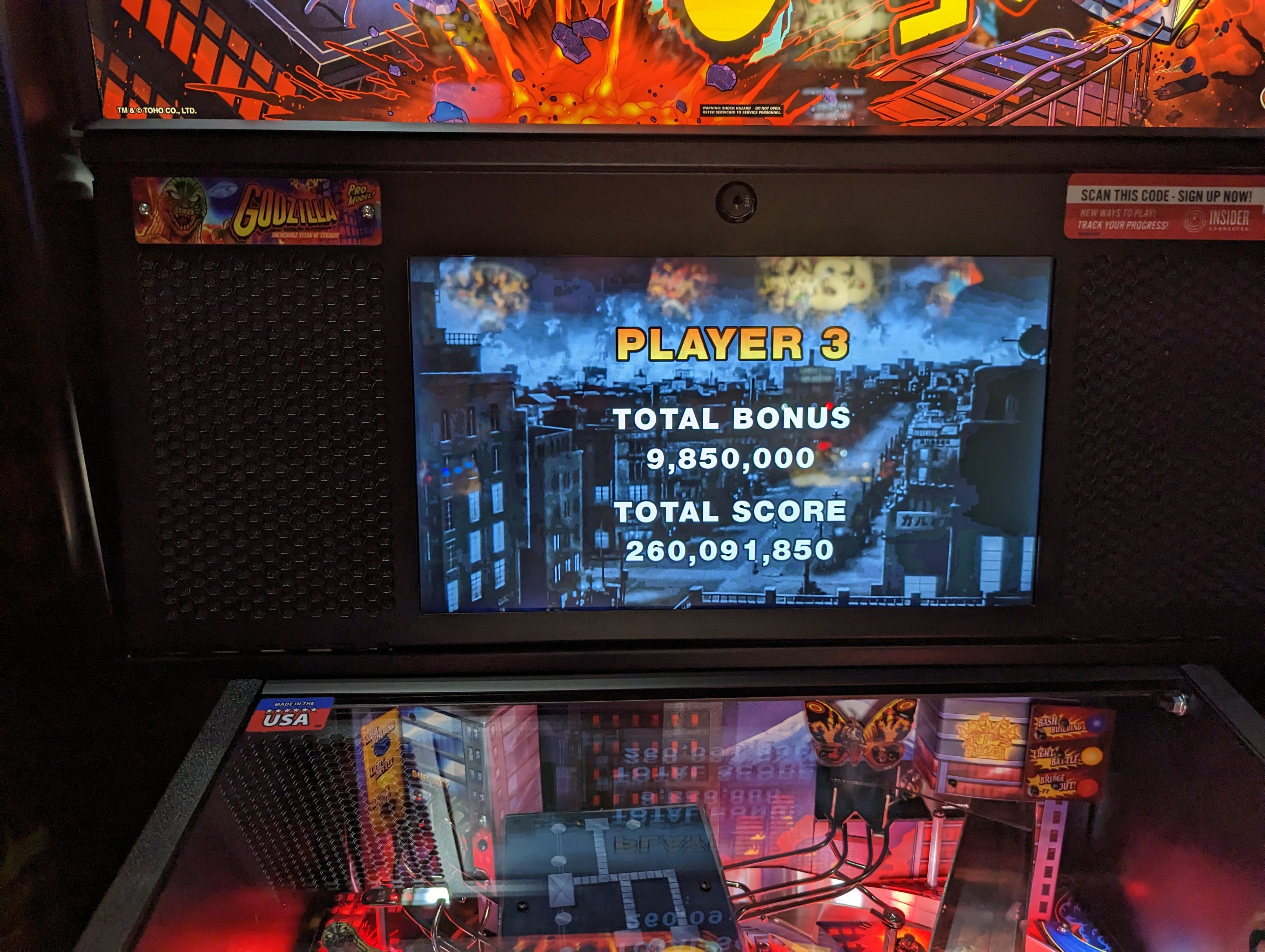Pinball: The Man Who Saved the Game
A bumper to bumper blast

As a child, I adored pinball. Whenever we’d go to my local arcade, that was my game. Soon enough, I was introduced to the ability to play at home: initially through a friend’s copy of Pokémon Pinball, then my own. Once my family purchased a home computer, 3D Pinball - Space Cadet was an obsession for my brother and I, burning hours and hours. And later came the more involved 3-D Ultra Pinball: Thrillride. My time spent on the various pinball games dwarfed my dedication to more traditional video games. I can’t put my finger on exactly what it was. Surely the flashing lights drew in little me, but I remember the rise and fall of unlocking and advancing through the various space missions, the thrill of upgrading my Poké Ball, and the intrigue of night falling over the amusement park. Multiball was a delight, no matter the game. And we always battled over the in-game leaderboard.
One of the best parts of any new pinball game is unlocking its secrets, such as the ones I mentioned above. I grew up in the age of the Internet, so I’m sure I could have looked them up online. But I never did; it was too exciting to do so on my own. I never got particularly great at any of them, but I did learn many strategies. Catching the ball on the flipper, timing your hit just right to build a rhythm, and that you don’t always want to pull the plunger all the way back.
All of this is to say that when I heard there was a movie coming about pinball, I really wanted to like it.
Pinball: The Man Who Saved the Game is ostensibly the story of Roger Sharpe and his part in helping to legalize pinball in New York City in the 1970s, which eventually spread to other cities nationwide. But really, it’s the story of a man whose hobby became his refuge, which gave him inspiration and a career, and who happened to be in the right place at the right time to be remembered.
Sounds like a fairly conventional story. And in some ways, it is. The story itself isn’t anything special, although it is kind of interesting, especially since many Americans cannot fathom why pinball was ever illegal (we’ll get there). What sets this film apart is its presentation. It’s not revolutionary, no, but it is impeccably executed.
Much of the film is a drama based on a true story, with Mike Faist playing the role of Roger Sharpe. It has a framing device where some documentarians are trying to get modern-day Roger (played by Dennis Boutsikaris) to tell them the story of the “greatest shot he ever took”. But Roger is kind of unconvinced of its importance. He actively (if weakly) fights the idea that it’s worth anyone’s time. And when he does relent, he insists on telling “the whole story”, much to the annoyance of the film crew - his arrival in New York, his first writing job at GQ, and his budding romance with Ellen (Crystal Reed). Yes, his love affair with pinball factors throughout, but he seems to view it as a vehicle to tell the very human story he’s actually interested in.
To that end, he actually fights with the “filmmakers” a few times. We see some events happen on screen, only for modern-day Roger to protest that this is stupid, it didn’t happen like that, he’s talking about real life not recounting a movie plot. And even at the end, modern-day Roger informs us a few particular details we saw were fictions added for dramatic effect.
The effect creates a movie full of life and heart, of humanity and imperfection. It's not a movie of important people doing important things; it’s just some guy who was living his life the best he could, coping with hardships and navigating his own fallibility, and along the way he happened to take part in a notable event that even he doesn’t put a ton of stock in. That is, it makes itself incredibly relatable. We feel like we could some day be Roger. It makes us want to be Roger, able to hold on to and elevate the small things that are important in life even when others want to talk about bigger events.
Throughout all this, the movie is absolutely hilarious. Faist is a awkward dork in the best and most endearing way. Sure, he has plenty of failings, isn’t the most socially adept, and is kind of bland. But he’s well meaning and sweet, even when we see the anxiety of his previous divorce creeping in. The whole rhythm of the story keeps him off kilter, and he’s got to adjust to a bunch of different odd circumstances. Such as primarily playing the only place he can find a machine: an adult bookstore. Or landing a job at GQ in the 70s, staffed by some very colorful characters and not-so-subtly targeted towards gay men, much to his surprise.
And here we also see some of the subtleties which successfully tie the whole thing together. When he first enters the adult bookstore, we see a flier on the wall behind him advertising a “gay power march”, connecting various activities which were absurdly ostracized: porn, homosexuality, and pinball. Obviously, pinball is the least consequential of the three, and the movie acknowledges as much in various ways, including overtly. But there is a thread there linking government reaching into people’s lives in a way that is both harmful and nonsensical.
I wouldn’t say this movie has a lot of very deep or novel or challenging things on its mind. But that’s not to say it lacks its dramatic moments. After Roger and Ellen’s elevator meet cute and first date (my favorite in a long time), they become the heart of the story. They make such an excellent couple, and the warmth we feel between them just radiates from the screen. We watch them grow together, as even though we’re focused on Roger, we meet her early enough and she’s given enough extra development to feel substantial. And of course, their relationship serves as the anchor for a number of the more intense moments of the film.
If I have any criticisms of the film, it’s just that I wish they did a better job explaining why pinball was illegal in the first place. The core thing they mention is that it’s a game of luck, and as such is dominated by the mob and used for gambling, especially to target children (another connection to modern moral panics). Which doesn’t really land; it’s so obvious to modern audiences that pinball is a game of skill and physics that such a rationale seems impossible. The closest they come is mentioning offhandedly that flippers were introduced to try to stave off a ban in NYC. Which makes the bans lack any weight. Yes, we’re meant to believe banning pinball is silly, but why pinball specifically?
I’ll spare you the in-depth history lesson, as I’ll just be regurgitating what I looked up online; I only vaguely had a sense pinball used to be illegal until Licorice Pizza confirmed it. The short version is that when pinball was banned, it was much more luck based than today. At that time, your only control was how hard you pulled back on the plunger, aiming for holes worth varying amounts of points. Not to mention the common practice of awarding free games which could be cashed out for money. The advent of flippers and elimination of some of these practices transformed the game, leading to what we see today, although government was slow to acknowledge such changes make a substantive difference.
All those details aren’t crucial, but it would have been nice to try to explain some of it.
That being said, the movie is so engaging and hilarious and heart-warming and raw and self-aware but self-deprecating that it barely hurts it. I look forward to continuing to see Faist and Reed in the film world. And I’m super excited to see what the Bragg Brothers (Austin and Meredith) do next!

I’ll leave you with a personal anecdote.
A few weeks back, a friend invited me to join him at a sports bar and play some pinball. I hadn’t played a physical game in years; on the off chance I go to an arcade, I’m rarely alone, so it’s not the most inclusive choice even if they have a machine. So I jumped at the chance. We grabbed some pizza and hung out at the bar, and just when I thought that was it, we stepped into this side room with a dozen machines. The machines are largely the same as I remember from growing up. Different themes and such, of course, but the hobby hasn’t advanced super far. Save for the addition of a persistent leaderboard app, tracking the best scores of the month per machine on a big screen in the room. We played a bunch of games and shot the breeze and had a great time, razzing each other and celebrating each other’s victories.
And then, I went on a magical run on Godzilla. I kept attracting kaiju to battle, and although I was unable to defeat any of them, I unlocked multiball three times with a single ball! It just kept going, and it was all I could do to contain my excitement and stay focused. When my run ended, I had what would have been the tenth best score of the month on that machine (pictured above). I say would have because it only counts if you’re registered. 😞
We’re heading there again this weekend, and you bet I’m gonna make this time count.